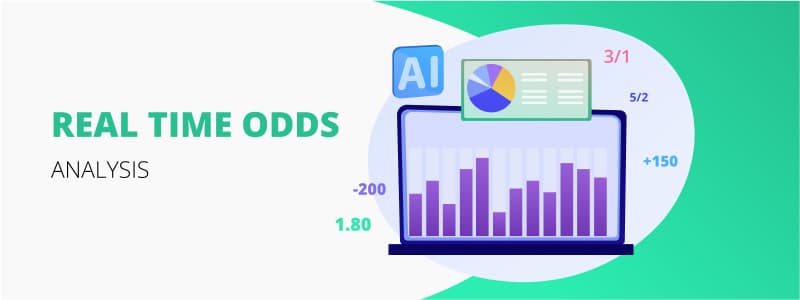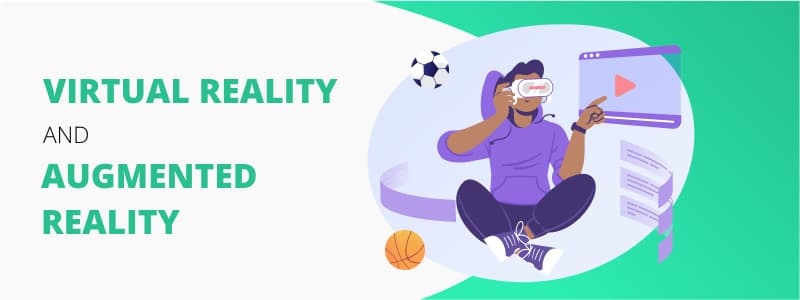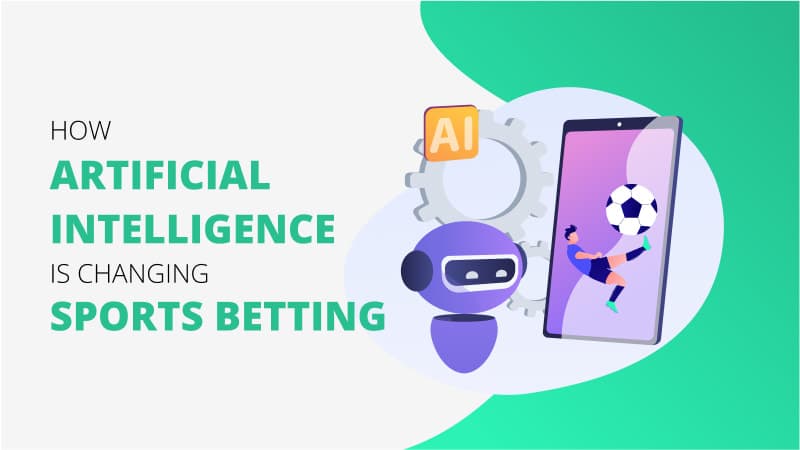Leaders in the iGaming industry have taken note of advancements in AI technology that have the potential to radically transform the market. Sports betting experts estimate around 60-70% of all sports bets will be placed through AI-powered platforms by 2025, according to Gitnux Market Data Report 2024.
And first movers will have the advantage of positioning themselves to expand their market share as the industry landscape changes with the broader usage of AI in sports betting. Let us see why experts think that AI technology can revolutionize the iGaming market.
AI's Role in Predicting Outcomes
One of the main uses of AI is accurately forecasting future outcomes by analyzing historical data via complex algorithms. These algorithms are based on neural network models of the human brain to process big data stacks.
They use Neural Language Processing (NLP) techniques to analyze text data from media records. The other major type of algorithms involves machine learning models that study data to reveal trends and forecast outcomes.
Outcome prediction is achieved by accurate prediction of three key components that affect a sports event outcome:
- Player/Team Performance Prediction:
AI has made it possible to analyze vast amounts of data – like a player’s past performance - to identify circumstances and patterns that foretell a player's efficiency on the field.
- Injury Prediction:
Injuries can dramatically change a sporting event’s outcome. So, analyses of players’ past injury occurrences, their training intensity as well as their fitness levels can help build models that predict likelihood of injuries during sport matches as well as training sessions.
- Weather Impact Prediction:
Most sporting events, particularly outdoor sports, are subject to considerable weather impact. AI and machine learning algorithms can analyze historical records to identify how weather conditions correlate with sporting event outcomes – an information that can guide in determining correct probabilities for event outcomes.
Maximizing Sports Betting Platform’s Return

The straightforward application of AI in sports betting increases operations automation which leads to higher efficiency.
Odds predictions generated by AI make it possible for a sportsbook platform to tailor the odds it offers to customers taking into accountsportsbook’s liabilities - the sum they owe to everyone should an event happen. This helps maximize sportsbook’s returns.
Additionally, partnering with an odds feed provider ensures that sportsbooks have access to the most accurate and up-to-date odds, further enhancing the AI-driven odds management process.
A sportsbook software provider can use the AI much in the same way to configure odds it offers to its clients of white-label or turnkey sportsbook solutions to match their preference for aggressiveness or conservatism. Such odds management helps sportsbook operators optimize their margins - also known as the vig, which is essentially the charge a bookmaker takes for offering a bet.
To illustrate the meaning of margin let us say there is a football game where both teams have equal chances of success - that is 50%, like in a coin toss. And in case the sportsbook didn’t charge a fee for offering the bet you would get even money if you made the right pick – you would have to bet $100 and would get $100 if you won. So, if you were to bet $100, you should be looking at a $100 profit if the sportsbooks offered true odds.
But the sportsbook will usually provide odds of -110 for each side of this wager, meaning that a $100 bet will only bring you roughly $91 in profit, or a 91% return. The other 9% is what the sportsbook keeps for itself as the fee for taking the bet.
Bookmaker’s` margin is a hidden cost embedded within the odds that ensures the bookmaker will turn a profit over time. The vig or the margin is effectively the amount of profit as a percentage that they should make on average on each game. The size of the margin directly affects the value of the odds a sportsbook operator offers - the lower it is, the more profitable the odds are for the bettors. Optimizing margins helps sportsbook operators “smooth out volatility.”
Real Time Odds Analysis

The advent of AI has made real-time odds analysis possible as sporting events unfold. This makes possible live betting as the AI enhanced software allows bettors to make real-time adjustments to their odds.
Dynamic prediction of outcome probabilities allows AI to conduct real-time odds analysis and update those odds. It is done by taking into account:
- newly updated player performance data, as well as
- changing weather conditions of the game and
- media reflection of the event.
Gamblers then can engage not only in prematch betting - when bets are placed before events begin - but also in live betting when you can bet during the game.
Dynamic prediction of sporting event outcomes via AI as games are played out in real time enhances bettors’ immersion and enjoyment from sporting events.
Besides enhancing bettors’ immersion, live betting allows gamblers to lock in a profit or limit losses by way of lay betting. Lay betting allows you to take the same position as a traditional bookmaker - by offering odds. And while in backing an outcome in a bet you put a stake and win when the outcome happens, you win the stake in lay betting on the outcome you believe will lose - you lay an outcome you believe will lose. It is done on exchanges mostly.
You are effectively offering counterparty odds - in other words odds for opposite possibility - on a particular result happening. In case the particular result happens, you pay the backer. If it doesn't, you receive the backer's stake. For example, if you make a lay bet on a horse, you will be backing any other horse to win the race.
The option of offering your odds for events that another gambler will back is similar to opening a short position on a stock exchange - with brokers buying and selling shares on event outcomes rather than stocks. The way you can have both long and short positions in a stock on a stock exchange, you can both back an outcome and lay that same outcome. Then you can secure a guaranteed profit - irrespective of the result - if you are able to back an outcome at a higher price than you lay it at.
Evolving odds in live betting present the opportunity to identify instances when this happens and earn guaranteed profits on them. Of course, it requires a higher degree of expertise and quick response to changing game conditions.
Virtual Reality and Augmented Reality

VR and AR incorporation with sportsbook platforms by combining them with AI is another development seen as capable of revolutionizing the sports betting industry. Essentially, VR will be used to let gamblers configure virtual environments where they will place their bets, while AR will provide real-time data and insights by overlaying digital information on real world events.
Read more about iGaming Trends and Technologies
Automated Betting Tools for Gamblers
Another way of enhancing bettors’ experience with a sportsbook platform is offering AI powered automated betting bots. Sophisticated AI modules are designed to study gambler’s betting history, preferences and behavior to suggest to bettors upcoming events as well as bets to consider.
Enhancing Fraud Detection with AI
AI is also used for detecting fraudulent activity such as match-fixing or insider betting. Elaborate smart systems based on machine learning algorithms monitor bettors’ activity and identify suspicious betting patterns such as coordinated betting activity across multiple accounts, spikes in betting volumes or sudden changes in odds. The generated alerts then allow administrators to take all necessary measures to make the betting market fair. Read more about
Conclusion
To sum up, the integration of AI in sports betting is transforming the industry by offering unprecedented accuracy, enhanced experiences, and improved security. As AI continues to evolve, its impact on the iGaming market will only grow, providing a significant competitive edge to early adopters. Embracing AI in sports betting is not just a trend but a strategic move towards the future of the industry.



